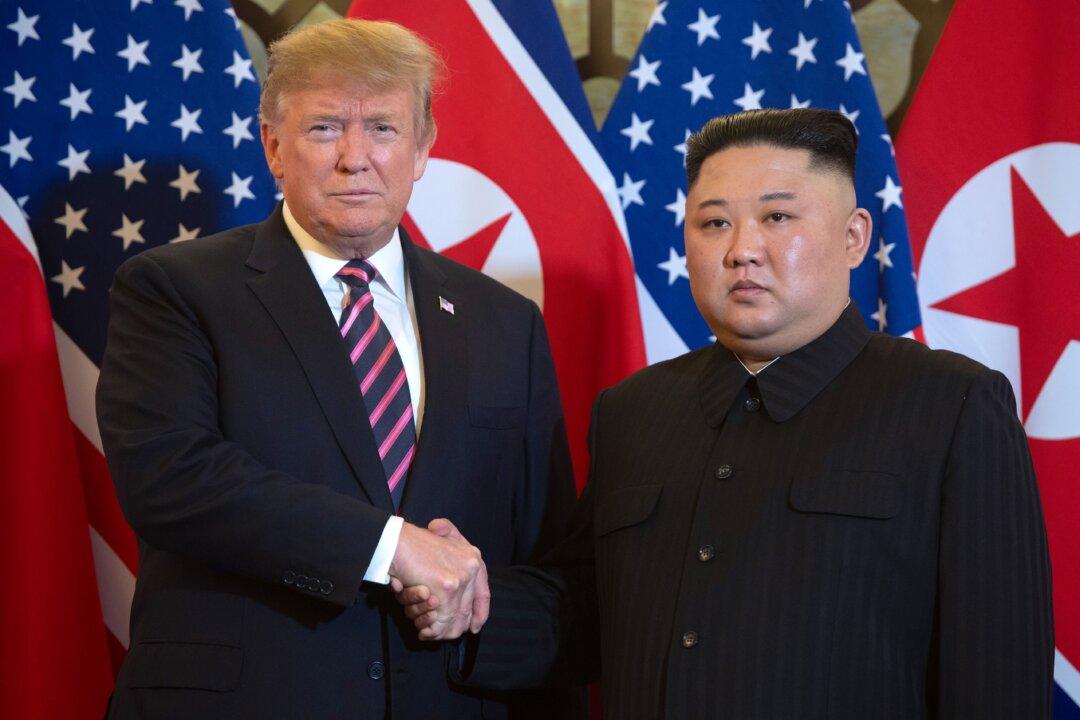HANOI, Vietnam—U.S. President Donald Trump and North Korean leader Kim Jong Un forecast their second summit will be a success, after a brief one-on-one meeting and a dinner in Vietnam’s balmy Asian capital on Feb. 27.
The two leaders marked the start of the summit with a handshake framed by a backdrop of American and North Korean flags at the Sofitel Legend Metropole hotel in Hanoi. The formal talks were set to start Feb. 28 at the same hotel.





